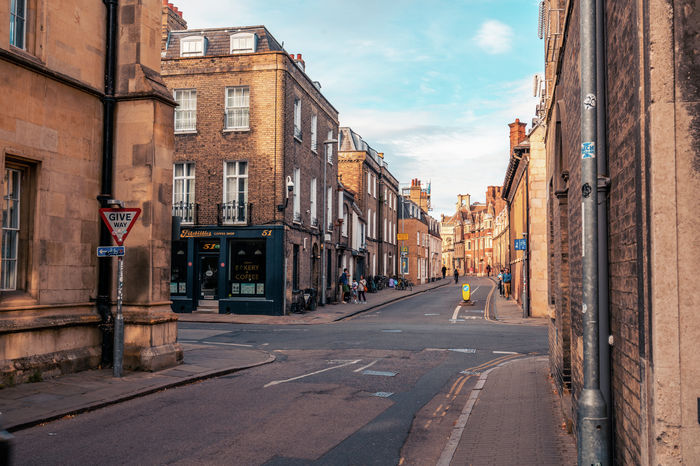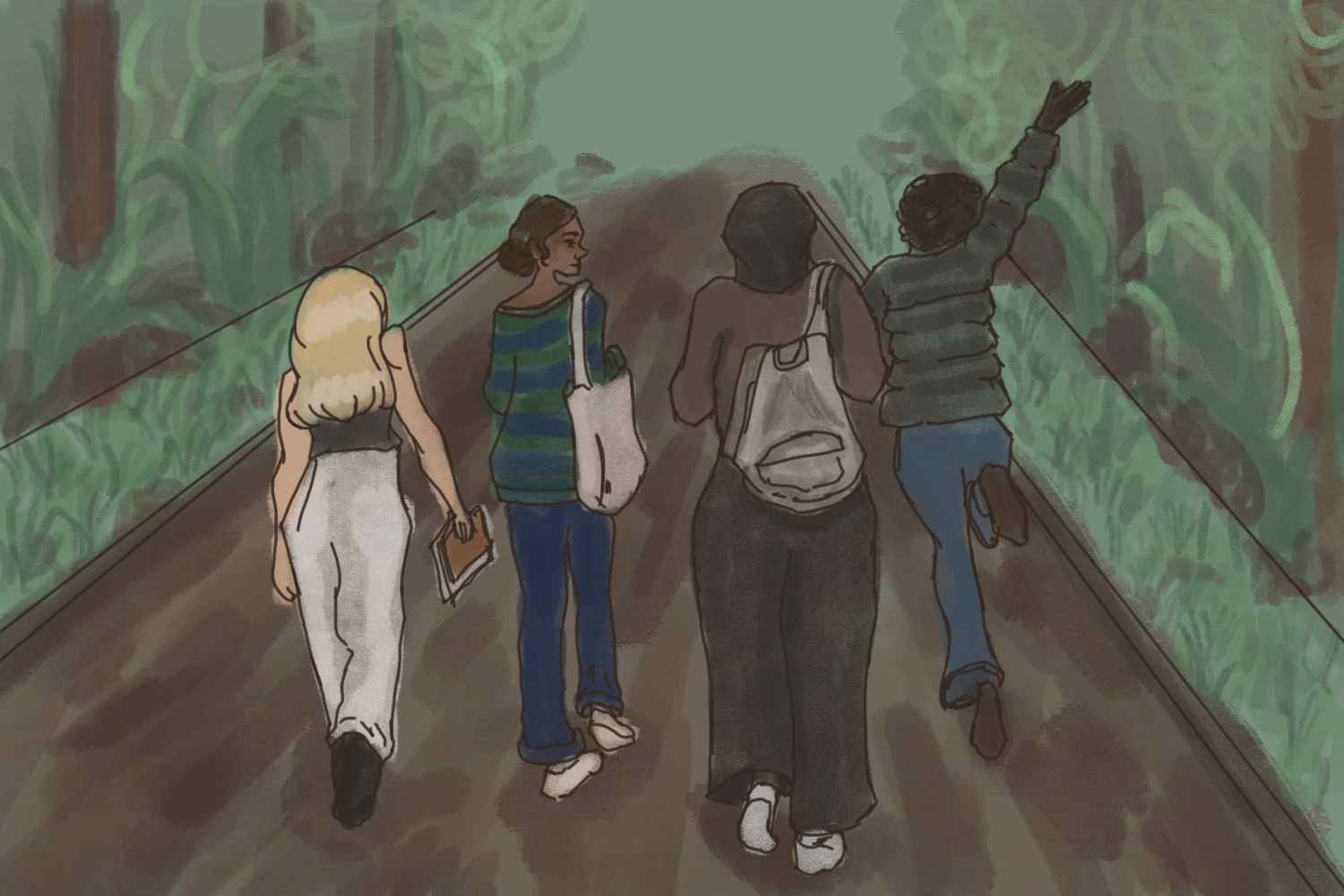Historically, feminist activism at Cambridge has conformed to a general mould. In 2018, an article for Varsity noted that “white mainstream feminism” was predominant, centred on the “concerns of an already relatively liberated class, rather than lifting up women around them”. Since then, numerous new societies have diversified the terrain. Although work remains to be done, feminist and women’s societies at Cambridge have never been so varied in audience, aims, and approach.
Undergraduate admissions statistics for the 2024 admissions cycle show that – in terms of proportion of accepted offers – women at Cambridge University have not just reached parity with men, but actually surpassed them. Nonetheless, some groups of women still risk feeling marginalised or isolated: either as minorities within their faculty, or as members of another minority group at the University. A range of targeted societies have emerged to offer these women community and representation.
The Emmy Noether Society is aimed towards women and non-binary people pursuing mathematics or maths-based subjects. Amalie Emmy Noether was a German mathematician who developed several theorems considered foundational in mathematical physics. The society’s name reflects its aim of presenting role models to female undergraduates in traditionally male-dominated fields. As committee member Chloe notes, “we don’t really hear a lot of theorems that have been made by women, so it is nice to see that representation,” adding that Noether is “someone a lot of us really look up to”. Committee members also seek to spotlight more proximate role models to the student body – the society runs a programme of lectures on mathematical topics delivered by female academics from the University.
“Women at Cambridge University have not just reached parity with men, but actually surpassed them”
Gauri, social media officer and webmaster for the Emmy Noether Society, cites another key aim: simply “to meet other women, have a community”. The mathematics finalist explains that “it’s just really hard to find women who do maths. If you go to lecture halls, it’s just maybe 15, 20% [women].”
In 2024, women made up only 22.7% of accepted offers for mathematics at the University, up from only 19.4% the previous two years. Through lectures, social events like film nights, and collaboration with equivalent societies such as the Women in Engineering society, Gauri hopes to help forge connections within this “quite small community”. In her own experience, these initiatives work: “I’ve met some really good friends through these kinds of societies.”
For others, challenges arise from the intersectional pressures of womanhood and belonging to minority groups within the Cambridge community – notably, the Black British community. In 2024, only 90 of a total 1,465 women who accepted undergraduate degree offers at Cambridge were of Black, Black British, or Mixed Black heritage.
As explored in a 2020 BBC documentary, ‘Being Black at Cambridge’ often creates additional pressures. One student, Fabiana, posited that many Black students, “don’t really feel like a part of the university,” while Sharon, a student of Eritrean origin, noted that “you do get a sense that you are, you know, different”.
“In 2024, women made up only 22.7% of accepted offers for mathematics at the University, up from only 19.4% the previous two years”
Enter Black Girl’s Space. Chika, the Vice President, describes the society as a “community” which is “catered towards empowering black women” within the Cambridge student body. She assumed the vice president role after benefiting personally from the community: “I find it really encouraging when I see people like me, people of colour, especially black women of colour, just thrive […] they thrive, so it’s possible for me to do the same.”
Similar to the Emmy Noether Society, BGS uses regular social events like ‘danceathons’, silent discos, and movie nights to bring their community together. Likewise, they collaborate with other societies with similar aims, including the Cambridge African and Caribbean Society (ACS). Many of their members are also part of the group Cambridge University for Reproductive Rights. As Janet, one of the society’s PR officers, notes, the BGS has turned its intersectional challenges into a strength: “because we are at the intersection of so many things, we can help more.”
BGS also operates a unique ‘Big Sister’ mentorship scheme, in which freshers can opt to be assigned an older BGS member who can offer to share their experiences, give advice, and act as a friendly face during the transition to Cambridge. Janet maintains that “having a group of girls facing the same difficulties […] is very important.” As such, the scheme helps integrate incoming freshers into the community, easing their transition by providing them with role models they can identify with.
Although BGS’s emphasis is on the student body, the society also aims to support black women beyond current Cambridge undergraduates. Recently, they have organised fundraisers such as braiding workshops for charities like HERSANA – a charity which supports black women across the UK who have been victims of gender-based violence, including FGM.
“Janet maintains that ‘having a group of girls facing the same difficulties […] is very important’”
Outreach also forms part of their work. Last year, BGS ran ‘winter school tours’ during which BGS members spoke about their experience of Cambridge to schoolchildren. This is an initiative which Janet is keen to repeat – particularly in areas in the North of England. Janet notes that, for Black women such as herself in her home community in Manchester, “wanting to go to a Russell Group was unique,” in part because “the mainstream presentations of black women aren’t the girl who goes to Cambridge.” Alongside a continued, vibrant social media presence, discussions with departments about hosting open days catered towards black women are also currently “in the works” – another way in which BGS hopes to provide representation of a thriving, Black, female community at Cambridge, thus encouraging more Black girls to apply.
Student Action for Female Education (SAFE) combines BGS’s approach of collaboration with other Cambridge societies with an even closer relationship to UK-based charities and an intended impact much further afield from the city of Cambridge. Founded within the Cambridge University United Nations Association (CUUNA), SAFE works in partnership with the international NGO Campaign for Women’s Education (CAMFED).
CAMFED provides ‘comprehensive education programmes’ for women in Sub-Saharan Africa, covering costs of school fees, food, transport, uniform and menstrual products to help alleviate material barriers to education faced by many girls in the region. CAMFED graduates work to increase the self-sufficiency of female education initiatives in Sub-Saharan Africa by leading the movement for girls’ education in communities within the CAMFED Alumnae Association.
“Although CAMFED is a Cambridge-based charity, its connection with students was quite distant” says Yusan, co-project leader of SAFE. As stated on the organisation’s webpage, SAFE aims to involve the student body more closely with CAMFED, thus “significantly expanding our funding capacity.”
“The shape of Cambridge women’s societies is being recast”
Founded in 2020, SAFE remained “dormant” for a few years, something which Yusan and her co-project leader, Soliyana, have begun to turn around through successful fundraising initiatives last year. Among them was a Christmas fair, at which many of the products sold were made by CAMFED graduates who had gone into business. “It was really amazing to see what these women could do once they had been given the opportunity,” Yusan beams, noting proudly that the fair raised more than £2000 for CAMFED.

At the crossroads: finding your own faith
Both Yusan and Soliyana are keen for the project not to resume its formerly ‘dormant’ state, urging Cambridge undergraduates, of any gender or background, to submit committee applications. They hope to build on last year’s work as part of an expanded team.
All the committee members I spoke to shared a common desire to, as Gauri expressed, “bring the change.” All brought smiles and colourful leaflets or posters to Fresher’s Fair on Parkers’ Piece earlier this October. Yet the diversity of their societies’ aims and intended audience is reflected in equally diverse methods and management. The shape of Cambridge women’s societies is being recast.

